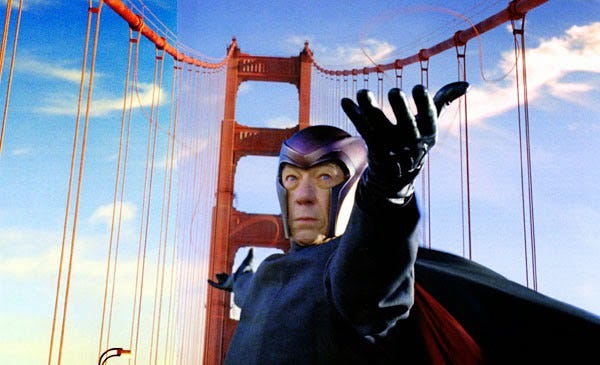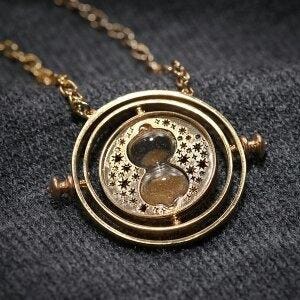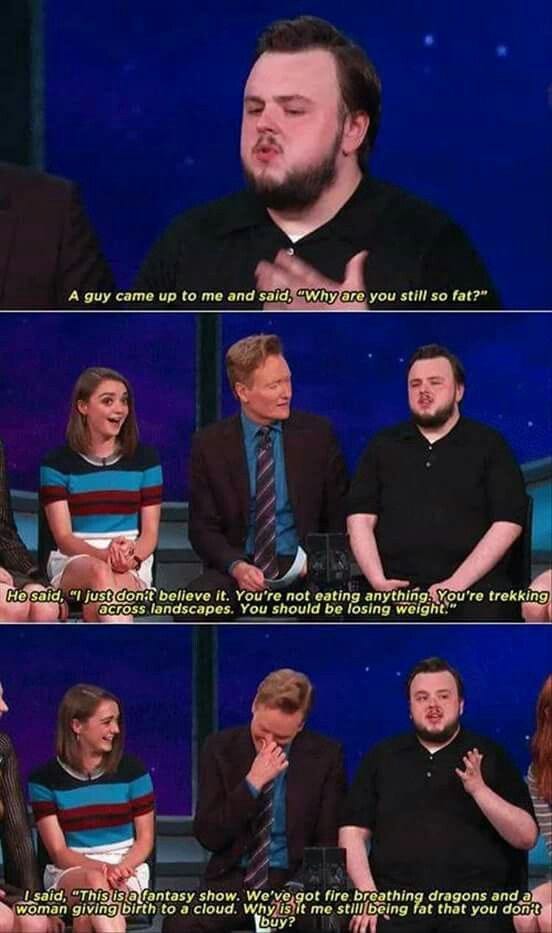Read this joke, or watch this video:
Ha ha, very funny. Or not. Whatever it is, it neatly skewers an issue with discussing fantasy: You can’t critique slightly unlikely events when the impossible happens all the time. That’s the joke.
But that’s obviously incorrect. I’m allowed to be confused when Harry Potter is blithely sent to walk in forest inhabited by monsters, but requires a slip from his guardians to go to a nearby town, even though that world has wands and goblins. It’s good to talk about what appears to be a gaping plot hole in Lord of the Rings (why Gandalf doesn’t just jump on an eagle and fly to Mount Doom), even though LOTR has elves and magic rings. It is reasonable to criticise the constantly changing nature of Magneto’s powers in the X-men films even though that universe has superpowers and Patrick Stewart and Ian McKellen. Just because a work contains impossible elements doesn’t put it beyond the realm of reasoned discussion.

The key question is consistency. And what a work should be consistent with. I don’t care whether a work is reasonable compared the our world, I care whether it is consistent with itself and its own rules. Rom-coms rarely mirror reality — the people are too beautiful, funny and pair up with too few issues — but we still get upset when characters do things which don’t make sense, like get together for the sake of a happy ending or use terrible dialogue. There are a set of agreed conditions at the start of such a film which allow us to quickly get into the world we are watching, but once we are in that rom com world, we can critique it. Fantasy should be no different. It is no different. So here we are:
1st law:
a) A story should be reasonable once its own rules and form are taken into account.
b) These rules should not be criticised on their own account, but rather when a work breaks them or doesn’t use them logically.
c) Applying rules to each other in logical ways makes your world seem more realistic and can be used to engage the reader.
Let’s use Game of Thrones. It’s rules are things like:
There is a medieval world
There are dragons & magic
Tyrion is relli relli hard to kill
It’s form is that of a gritty fantasy novel with grand plots and a global scope. If we are going to criticise it, we have to take these rules and form into account.
Or Harry Potter:
There is a modern world
There is a secret world of medieval witches and wizards
There is magic and mythical creatures
There is a spell that disrupts people
There is a spell that kills people
There are a bagillion other spells
It’s form is of a children’s book which becomes grittier and more adult over time. Now I like Harry Potter, but I think using these rules and form, we can make some reasonable criticism. Throughout all human warfare people have used the best options available to them. Few poeple nowadays fight with swords. So once you have a good disruption spell and a good killing/stunning spell, that’s about all you need. There is that one fight where one person summons a giant snake then the other one turns it into a swarm of bees which the first guy freezes (or whatever). This doesn’t really make sense, why not just kill them with a zap of avada kedavra? And if this was in Harry Potter 1–3 I’d probably not worry since a children’s story don’t require high levels of internal consistency. In my opinion, gritty, young adult fiction does, so I think we can ask why everyone is so flashily inefficient in killing/subduing one another.

As a final example, let’s look at Christopher Paolini’s Eragon. It’s a young adult fantasy novel with the following rules:
There is a medieval world (feels like I type that a lot)
There are dragons
Magic means things happen instantly, but require the same amount of exertion
A load of other rules
There is a great scene, where the main character is low on cash but knows some magicians. He gets them to make silk clothing (which is time consuming but doesn’t require much physical strength) so rather than painstaking hours of dextrous enterprise, they can do it immediately. Our buddy Chris Paolini has used his rules to solve a problem in a neat way. Good job Chris. (For a good essay relating problem solving and magic follow this link.)
The thing is that we the readers could have made that jump of logic ourselves — all the tools were there. So by the author doing it in front of us, we realise the characters in the story are independent actors, capable of insight and epiphany. They aren’t just making the decision they are presented with, they are cheating and breaking the game. Much like we do.
The key thing is that particularly when we talk about fantasy we seem to mistake three things, which I’ll call the suspension of reality, disbelief and criticism. The world in the story is not like our world (reality), but is that so different from the suspension of disbelief required when we watch James Bond? We think we can judge the narratives of Shakespeare, but because Game of Thrones has dragons? All stories ask us to suspend our disbelief, some ask us to suspend our notions of reality but I don’t think we are ever required to stop being able to critique a work, whether it is War and Peace or Spongebob Squarepants.
I’m not saying you need to be that person who sits in the corner of the room always picking holes in things — I like many worlds which I think contain issues. Probably it is bad to ask why Tarly is still fat, mainly cos it doesn’t mean much. Rather, I think there are good and bad ways to critique fiction and hopefully learning them will help you to produce better fiction, building on your rules to create a world of growth and change. The plaintive cry, “but none of it is real anyway” is nonsensical and boring, and always has been.
Reposted from an earlier blog. This format piece is inspired by Sanderson’s Laws of Magic. The content was something that’s been bugging me for ages.




